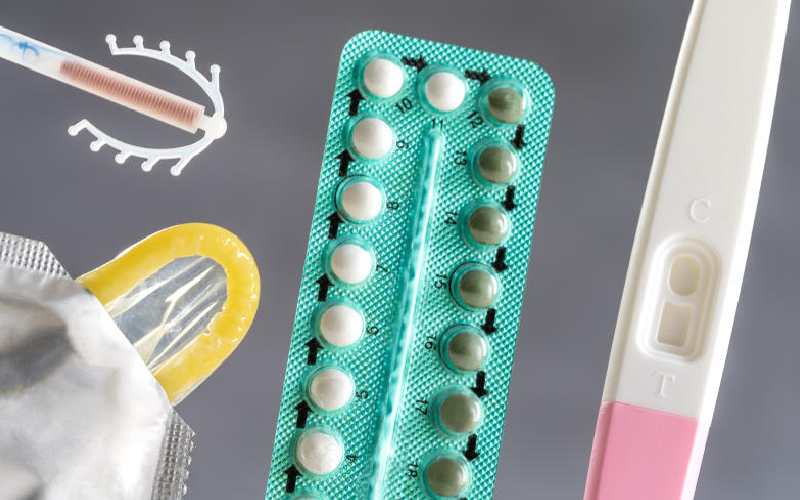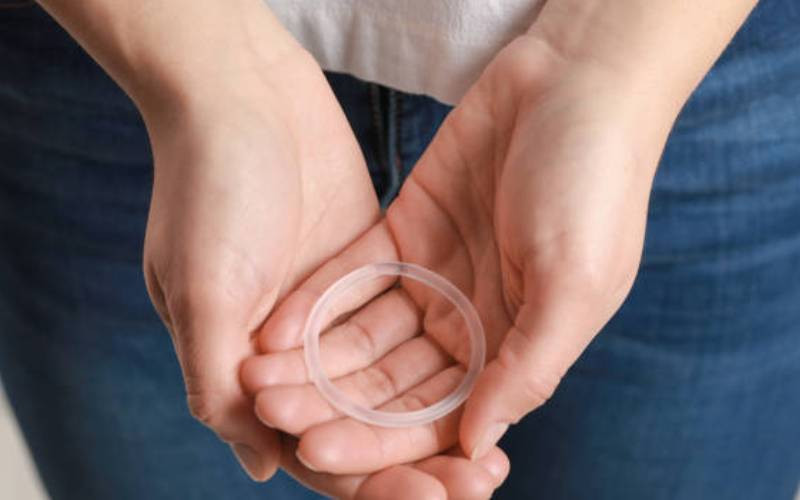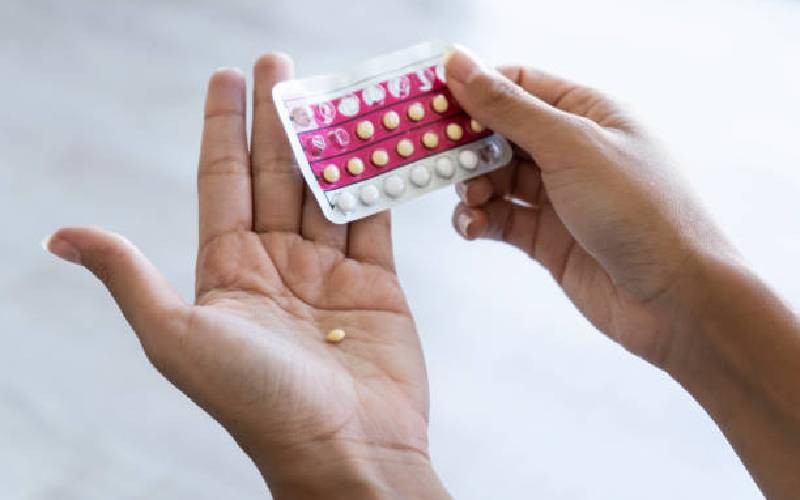
Many factors like age, physical and mental health are known to affect libidos of both men and women. What is not clear though is if or how birth control does. Some attribute their choice to heightened sex drive while others think it is the reason they will swear headaches and fatigues every night. Going by the Family Planning Report 2020, the uptake of modern birth control methods has surpassed the 58 per cent target set for 2020. This makes the issue of birth control and its effect on sex drive a real concern for many Kenyans. For Mary Okoth, a nurse in a city hospital, who swears by the hormonal implant, her sex life couldn’t be better.
“It may be the hormones. But I am raring to go, contrary to what some of my colleagues said would happen,” she says, a happy camper.
But what does research say?
1. The injection
According to a study conducted by Family Health International and the University of Nairobi, most Kenya women -approximately 47.0 per cent - preferred the injection because it requires fewer trips to the clinic and is discrete. With a recorded 99 per cent effectiveness when used correctly, the progestin containing injection - a synthetic form of progesterone - works by blocking ovulation. This reduces estrogen production and “convinces the body that it is already pregnant.” It also works by building up mucus to deter movement of sperm cells. A woman will have to adhere to the injection every two – to three months or otherwise risk the chance of pregnancy. Research conducted by the Aga Khan University Hospital reported about one in 10 people using the injection experienced “low libido” during the first six months. In a similar prospective cohort study, 13.3 per cent of Kenyan women who discontinued the use of the injectable within six months did so due to reduced libido. Interestingly, similar findings were observed in Uganda, with attributed vaginal dryness contributing to sexual dissatisfaction. However, the change in sexual function was found to be insignificant and does not equate to a universal side effect.
2. The Implant
Regarded as the second most common contraceptive used by women, the implant works by suppressing ovulation. It can last between three and five years. It is reported that less than one in 20 people using the implant experienced reduced libido with varying estimates. It is also reported that the numbers of those who had decreased libido were fewer than those whose sexual satisfaction improved or those who noticed no changes in their sex lives.
3. Intrauterine devices
Intrauterine devices come in two forms: hormonal IUDs that release progestin to suppress ovulation and copper IUDS that hinder sperm function to prevent fertilisation. Depending on the type, IUDs can last between three and 10 years placed into the uterus. A study showed that three of 10 users of IUDs reported increased sexual spontaneity due to its long term use and less worry about birth control every day or every few months.
4. The pill
Combined oral contraceptives contain different formulations of oestrogen and progestin hormones. Findings from a 2013 review of studies relating the pill to sexual function reported that people using the pill containing the smallest dose of oestrogen, about 15 micrograms, had reduced libido compared to people using higher doses. Out of 13,673 women evaluated, 85 per cent reported an increase or no change in libido, while 15 per cent reported a decrease. One purported reason why combined oral contraceptives may negatively affect libido is by decreasing testosterone levels in the body. Decreased testosterone is highly associated with decreased libido.
5. Vasectomy/male sterilisation
Vasectomy is a painless, fast and extremely effective family planning method that does not interfere with sexual function or pleasure. According to the Family Planning 2020 movement, only 8.2 per cent of family planning users are under permanent methods, which include vasectomy. The misconception that vasectomy is a form of castration is considered as one of the main barriers for this choice among men. According to Marie Stopes Kenya, this male sterilisation surgical procedure takes approximately 15 minutes and causes no physiological changes in a man’s body. It does not interfere with nerves or blood vessels that play a pivotal role in erection and ejaculation. All vasectomy does is prevent sperm from being released into ejaculation fluid. Since sperm contributes between 2 per cent to 5per cent of semen, the reduction in ejaculated fluid is almost negligible. “The testicles and adrenal glands will continue to make testosterone - the hormone that controls masculinity. This means that you will continue to have a sex drive, speak with the same voice and form facial hair,” says Dr Dawn Stacey, a scientist with the Ottawa Hospital Research Institute.
6. Condom
Stay informed. Subscribe to our newsletter
While the worry of condom breakage can psychologically affect the desire to have sex, this method does not cause any effect on libido on its own.
7. Tubal ligation
Studies following women who made the choice to have their tubes tied have consistently reported no change in sex drive. This can probably be attributed to the freedom that comes with knowing that it is an effective method with minute chances of failing and also that the procedure does not affect a woman’s hormone levels.
 The Standard Group Plc is a
multi-media organization with investments in media platforms spanning newspaper
print operations, television, radio broadcasting, digital and online services. The
Standard Group is recognized as a leading multi-media house in Kenya with a key
influence in matters of national and international interest.
The Standard Group Plc is a
multi-media organization with investments in media platforms spanning newspaper
print operations, television, radio broadcasting, digital and online services. The
Standard Group is recognized as a leading multi-media house in Kenya with a key
influence in matters of national and international interest.
 The Standard Group Plc is a
multi-media organization with investments in media platforms spanning newspaper
print operations, television, radio broadcasting, digital and online services. The
Standard Group is recognized as a leading multi-media house in Kenya with a key
influence in matters of national and international interest.
The Standard Group Plc is a
multi-media organization with investments in media platforms spanning newspaper
print operations, television, radio broadcasting, digital and online services. The
Standard Group is recognized as a leading multi-media house in Kenya with a key
influence in matters of national and international interest.









